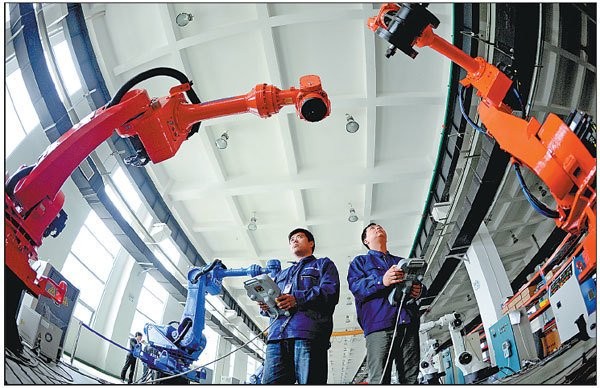In a new guideline released Wednesday, China revealed plans to triple its production of industrial robots by 2020.
The guideline posted on the website of the Ministry of Industry and Information Technology (MIIT) said that the country aims to increase its current production of around 33,000 units annually to around 100,000 in four year's time, the Global Times reported.
China became the world's largest market for industrial robots in 2013 and 2014, surpassing traditional market leader Japan. In 2014 alone, a total of 57,000 units were sold, a 56-percent increase from the previous year. However, of this number, only 17,000 came from local manufacturers, according to the data provided by the MIIT.
MIIT vice minister Xin Guobin is optimistic that the current trend will continue and that the market will continue to grow. According to the International Federation of Robotics (IFR), China currently has 36 industrial robots per 10,000 workers, compared to Japan's 314 and the world average of 66.
The IFR said that such numbers still leave plenty of room for growth and forecast sales to increase to 150,000 units by 2016. Analysts said that the increased demand for robots will likely be fueled by rising labor costs and potential labor shortages.
China also plans to incorporate industrial robots to more manufacturing industries like aviation, textiles, chemicals and food production.
Aside from that, the MIIT will also encourage domestic manufacturers to venture more into the high-end robotics market, which is currently dominated by international companies, China Daily reported.
The published guideline also revealed that research and development in the field will be a top priority, with special funds from the central budget to be allocated to such projects. Financial institutions are also encouraged to partake. Chinese Academy of Sciences academic Feng Xisheng said that the future of the industry will depend heavily on these efforts as well as research in related technologies.



























